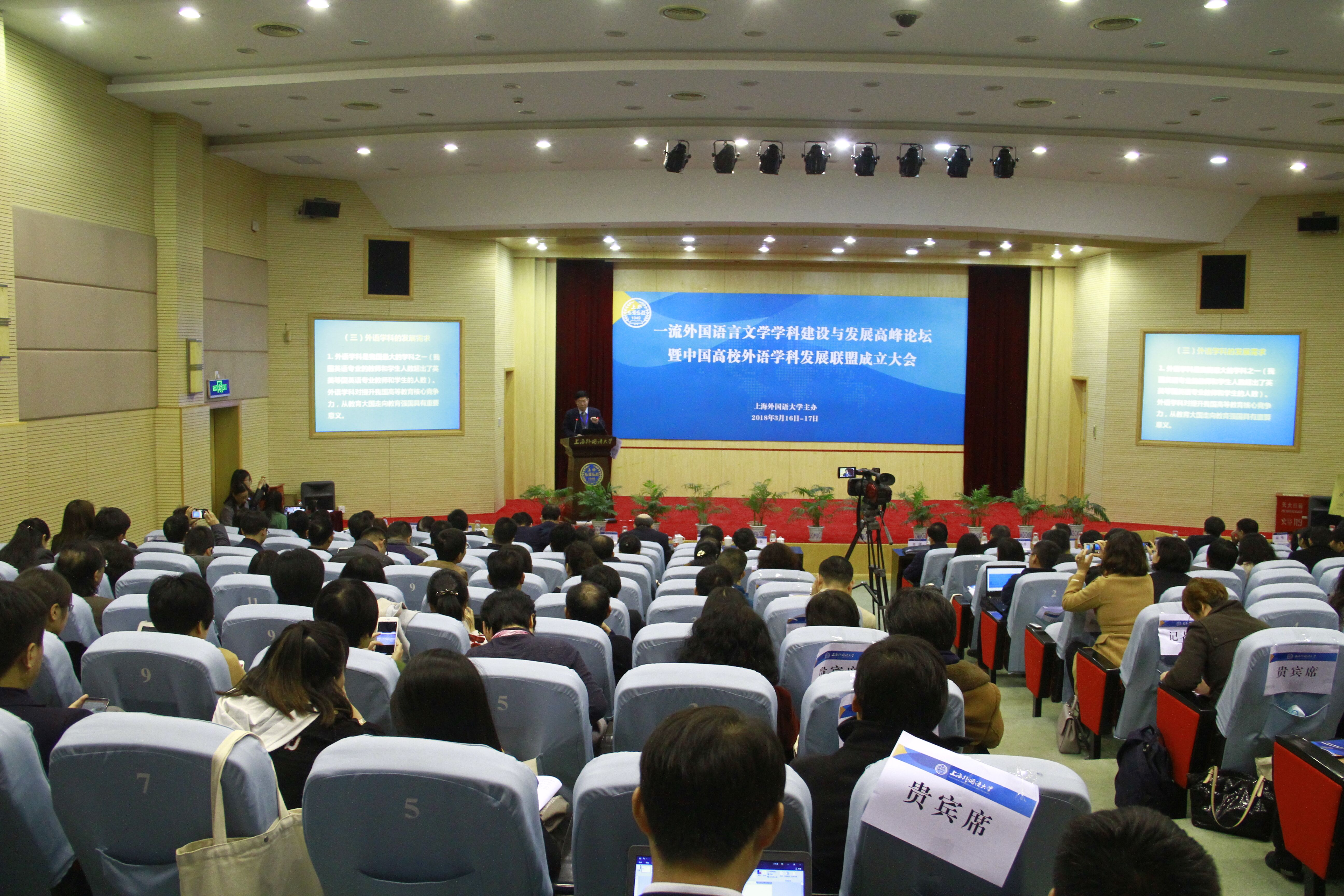Foreign language and literature studies in China prioritize quality over quantity

The High-Level Forum on the Construction and Development of First-Class Foreign Language and Literature Disciplines was held in Shanghai on March 17. (ZHA JIANGUOCSST)
SHANGHAI—In the context of developing world-class universities and first-class disciplines, China’s foreign language and literature disciplines need to prioritize quality over quantity, said experts at the High-Level Forum on the Construction and Development of First-Class Foreign Language and Literature Disciplines in Shanghai on March 17.
China’s foreign language and literature disciplines have made great progress in the process of adapting to the country’s economic and social progress, experiencing a period of rapid development especially after the reform and opening up. At present, the number of disciplines in the field is nearly saturated, and its quantity of academic output has exceeded that of developed countries, such as Britain and the United States.
Although China has become a major country in the study of foreign languages and literature, it is still not a strong country. The quality and level of related research need to be further improved, said Li Weiping, director of the Academic Committee on Foreign Language and Literature Disciplines at Shanghai International Studies University (SISU). The launch of the “Double First-Class” initiative signifies that foreign language and literature disciplines have entered a crucial period of transition from quantitative to qualitative change.
The new situation in the new era requires timely adjustments and changes to the orientation and connotations of foreign language and literature disciplines, said Ning Qi, dean of the School of Foreign Languages at Peking University. With the increasingly closer connection between China and the world, foreign languages are not only a communication tool but also an important tool for research. Linking different cultures, foreign language and literature disciplines provide theoretical reference and research support while participating in the construction of discourse systems with Chinese characteristics together with other disciplines in the humanities and social sciences.
“The new era is one in which China is increasingly approaching the center of the world stage and providing more wisdom and formulas for global governance,” SISU President Li Yansong said. The construction of first-class foreign language and literature disciplines in the new era should be further connected with the “Belt and Road” initiative and the “going global” strategy. To constantly improve the quality of those disciplines, people need to transform and boost culture in a creative way, actively engage in regional and country studies as well as global knowledge building, and strive for progress in interdisciplinary and cutting-edge research.
Dong Hongchuan, vice-president of Sichuan International Studies University, called for strengthening talent training in non-universal languages in the context of the “Belt and Road” initiative. For example, China has been Ethiopia’s largest trading partner, its most important source of foreign investment and its biggest project contractor for many years. However, at present, few people in China understand Ethiopia’s official language Amharic. Talent in less-spoken languages has advantages, but there are also limitations since the languages they master are spoken by fewer people in narrower geographical areas. As such, in the curriculum design, people need to consider the needs of national development as well as students’ actual development and career prospects, Dong said.
Under the new situation, talent cultivation in foreign language and literature disciplines should aim at multilingualism, interdisciplinarity and internationalization, and strengthen professional and general education, said Yan Guohua, vice-president of Beijing Foreign Studies University. It is necessary to train top talent who are proficient in the language, culture and history of the target country as well as those with knowledge of international laws and strong communication skills, Yan added.
(edited by JIANG HONG)
